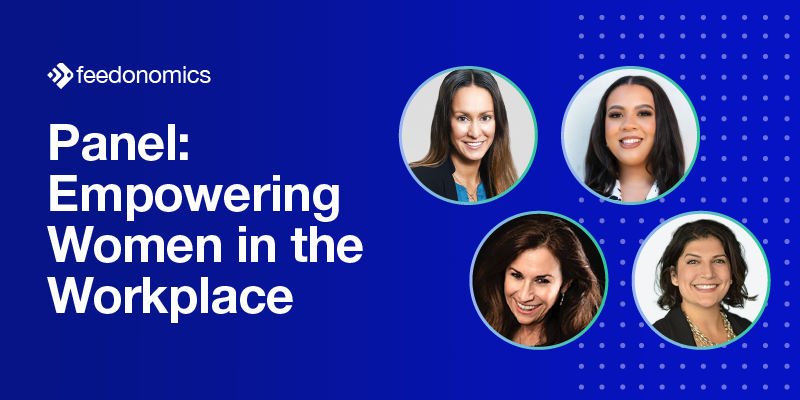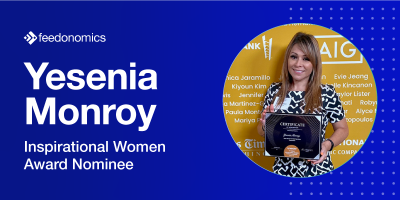In celebration of Women’s History Month, Feedonomics hosted a panel featuring four accomplished women who shared their perspectives on “Empowering Women in the Workplace: Strategies for Success and Overcoming Challenges.”
The discussion was led by Sarah Weinman, Senior People Empowerment Specialist at Feedonomics, and included the following speakers:
Mina Stokes, Director of Talent Acquisition, Feedonomics
Selena Victoria, Senior Diversity, Equity, Inclusion and Belonging Manager, Pluralsight
Dr. Lori Wiener Brawerman, Co-Director, Behavioral Health Core
Amera Khalil, Strategic Account Director, Feedonomics
The group shared their experiences, perspectives, and insights gathered from their personal and professional lives.
Dr. Lori Wiener Brawerman shared some of the lessons she’s learned over the course of her career as a clinician and behavioral scientist. She advised women to choose mentors wisely, recognize toxic relationships early, stay true to their values, and maintain strong professional connections.
“We can’t fix everyone, and we can’t resolve all the issues that come our way, and our skill is knowing how to make the people who come to you feel that they are heard, and glad that they asked—even if you have to say no,” Lori said.
Amera talked about dealing with rejection—a challenge she’s faced frequently on her road to becoming a top-performing sales professional. Success in a competitive work environment requires grit and sustainability, she said.
“You need to be consistent and persistent, and you need to know that you’re going to be told no more than you’ll be told yes, and know that that doesn’t determine your worth,” Amera said.
Amera recommended tempering this persistence with practices that help you to recharge and stay focused on your goals. For her, that means practicing yoga daily, but she suggested everyone should find their own “modes of sustainability.”
The panelists also tackled another commonplace issue facing women in the workplace: imposter syndrome.
Mina encouraged women not to downplay their achievements, and to feel more comfortable communicating them to others. She highlighted how imposter syndrome can also be caused by biases in the workplace, and that women should consider whether their doubts are internally or externally caused.
To better empower women in society and in the workplace, Selena suggested taking a more data-driven approach to analyzing the gender makeup of the workplace. Companies should use that data to customize programming around the women in the organization and decide which roles to focus on hiring them for is a step in the right direction, she said.
“In society, I think we need to better understand where we all come from as women, our different perspectives, and that we all bring something different to the table,” Selena said. “It really matters in our fight for equity and equality to include all women in that fight.”

With its leading data feed management platform, Feedonomics helps brands, retailers, and agencies optimize and list products on hundreds of shopping destinations around the world. Learn more about our full-service solutions for advertising channels and marketplaces.




